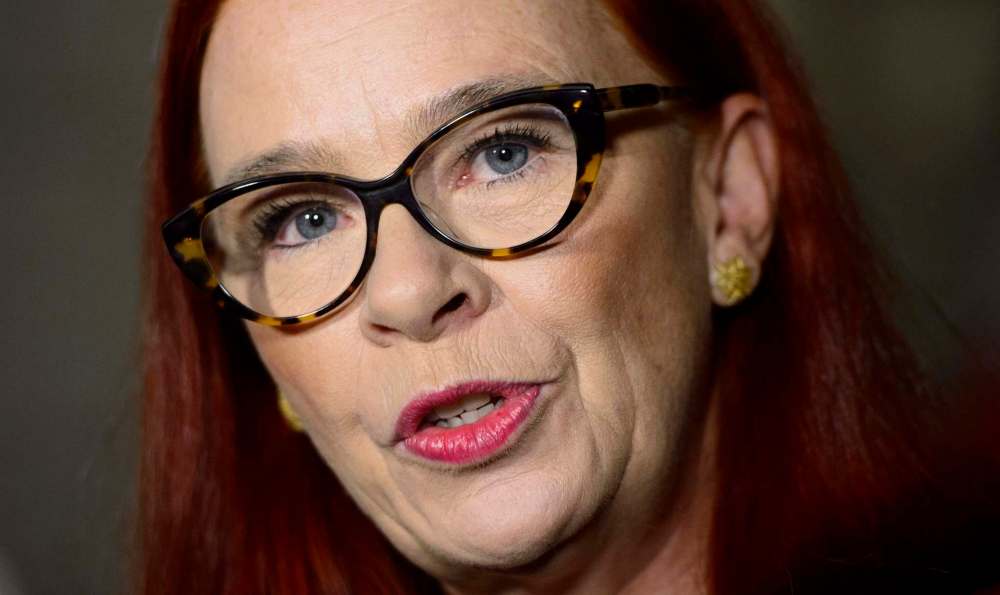CEO tells competitors to stop attacks against CBC
Advertisement
Read this article for free:
or
Already have an account? Log in here »
To continue reading, please subscribe:
Monthly Digital Subscription
$0 for the first 4 weeks*
- Enjoy unlimited reading on winnipegfreepress.com
- Read the E-Edition, our digital replica newspaper
- Access News Break, our award-winning app
- Play interactive puzzles
*No charge for 4 weeks then price increases to the regular rate of $19.00 plus GST every four weeks. Offer available to new and qualified returning subscribers only. Cancel any time.
Monthly Digital Subscription
$4.75/week*
- Enjoy unlimited reading on winnipegfreepress.com
- Read the E-Edition, our digital replica newspaper
- Access News Break, our award-winning app
- Play interactive puzzles
*Billed as $19 plus GST every four weeks. Cancel any time.
To continue reading, please subscribe:
Add Free Press access to your Brandon Sun subscription for only an additional
$1 for the first 4 weeks*
*Your next subscription payment will increase by $1.00 and you will be charged $16.99 plus GST for four weeks. After four weeks, your payment will increase to $23.99 plus GST every four weeks.
Read unlimited articles for free today:
or
Already have an account? Log in here »
Hey there, time traveller!
This article was published 31/10/2018 (2599 days ago), so information in it may no longer be current.
OTTAWA — The head of the CBC is telling private-market competitors to back off on attacks against the public broadcaster, saying media need to collaborate on news to undercut the rise of misinformation.
“Attacking each other is not a solution,” said Catherine Tait, president and CEO of both CBC and Radio-Canada. “In order to ensure trust, we must work together.”
She also said the CBC might change its peculiar accounting practices, which obfuscate how much taxpayer cash goes to digital offerings.

In a keynote speech at an Ottawa telecommunications conference, Tait said media ought to collaborate to prevent fake news and disinformation from shaking Canadian politics.
She did not offer specifics, but told reporters that CBC could share resources with its competitors instead of “sending out seven trucks to the same location” for simple press conferences.
“I think we’re all realizing that the days of straight-up competition in the domestic market simply don’t make economic sense,” she said.
Tait told the conference Canadians should subscribe to newspapers. She similarly suggested Parliament might close loopholes that have allowed foreign giants to take money out of Canada’s media market without investing domestically.
Senators and advocates have called on Ottawa to stop allowing Canadian businesses to write off advertising on foreign social-media platforms, which has undermined Canadian media organizations.
“We all have financial challenges, but it’s not public broadcasting that is hurting private media in Canada. Making the public broadcaster smaller or weaker won’t stop the Googles and Facebooks of the world, or the spread of disinformation,” she said.
Tait’s remarks come just days after a torrent of criticism over the CBC’s decision to air murder mysteries and baking shows on television instead of municipal election coverage, opting for radio broadcasts and live coverage on social media.
The 1991 Broadcasting Act says the network’s mandate is to “provide radio and television services” that reflect the country, but that CBC “programming” should “be made available throughout Canada by the most appropriate and efficient means and as resources become available for the purpose.”
That’s led critics to insist the CBC has no business moving its duty to inform off of conventional broadcasting, while Tait and others say the network ought to focus on online offerings to reach more Canadians.
In September 2016 testimony to Parliament, the founder of the site iPolitics, James Baxter, called the CBC “an uber-predator” for putting the bulk of its resources in markets that are already competitive, producing free news that leaves “a profoundly chilling effect” on upstarts trying to charge for content.
After her speech, Tait said she’d be open to having the CBC provide more transparency over how it uses its annual $1.2 billion of taxpayer cash.
She noted that the CRTC just renewed its licence, and on the next renewal — scheduled for fall 2020 — she would provide more data if the regulator asked CBC to do so.
“We really respond to the CRTC requirements and we’ll look at that for sure. And there’s a lot of interest in looking at digital,” she told the Free Press.
Canadian law only compels broadcasters to report their spending for radio and television programming, not their online offerings. Meanwhile, the CBC reports its spending on two separate timelines, receiving its funding on fiscal years starting in April, and reporting its spending to the CRTC each August.
Comparing each 2017 figure shows that $209 million of the parliamentary stipend isn’t accounted for in either the radio or TV spending reported four months later. Critics believe that means the network spent that much money on digital services.
But Carleton University communications Prof. Dwayne Winseck cautions that the two numbers can’t be directly compared, because of the four-month summer gap which can include major broadcasting events like the Olympics.
He sees a lack of transparency in the CBC’s budgeting. “The CBC has historically and recently been notoriously bad at this, which really cuts against the grain of them being a good, public-service media provider,” Winseck said.
Similarly, the CBC reported a drop of 1,100 full-time staff working in television from 2016 to 2017, but a 342 increase in overall employees. That makes it unclear if the CBC has more than a thousand employees dedicated to online content.
Speaking generally, Tait noted that CBC reporters often file content used for radio, television and online reports. “We approach our news as multi-platform.”
dylan.robertson@freepress.mb.ca
History
Updated on Thursday, November 1, 2018 9:31 AM CDT: Corrects dates of licence renewal to fall 2020.
Updated on Thursday, November 1, 2018 11:40 AM CDT: clarifies Tait's comments about social-media ads




